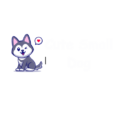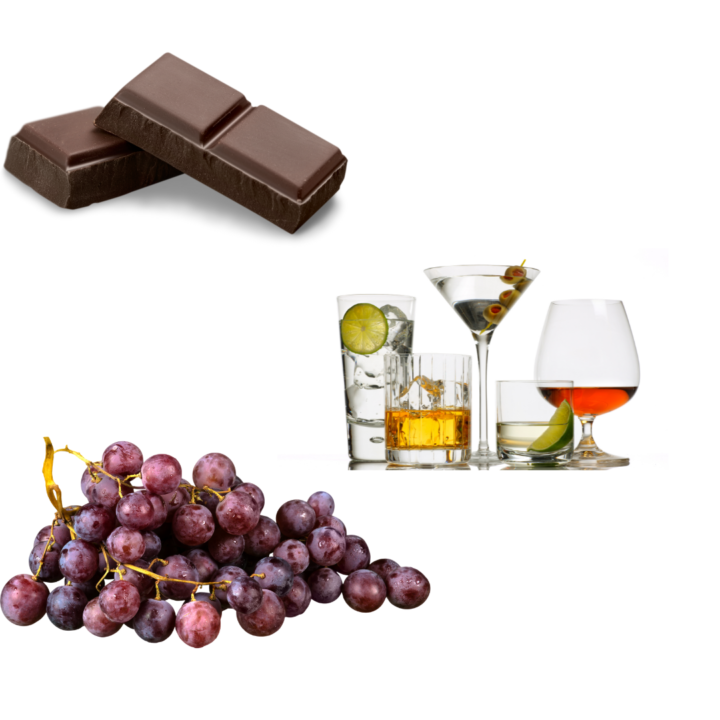Ever had a food-poisoning event that had you vomiting for hours at a time? Well, your furry friend is just as prone to getting an upset stomach by eating something funny just like humans. The only difference is, that the 10 things not to feed your dog are often the foods that are perfectly harmless for humans.
Many pet parents have the habit of letting their dogs have a bite or two from their plates. While this may not show instant effects, it can severely damage your dog’s stomach.
Dogs are also often found lurking near the pantry, trying to sniff something to eat. Thought that’s the sign of a curious dog? No! This behavior often hints that your dog is not getting the nutrition he needs from his diet.
Yes, regular dog food has many things from the human table but they are treated and cooked in a specific manner so as to not be harmful to dogs. Therefore, you should always do your homework to know what ingredients dogs should not eat.
Lucky for you, we have the perfect guide to the 10 foods harmful to dogs that you should always steer clear of! Let’s find out all about the dangerous treats so that your dog can thank you later:
10 things not to feed your dog:
Chocolate:
Notice how your dog’s eyes start to shine every time you wave a bar of chocolate? Well, as much as you get tempted to treat your dog, chocolates are the first things to come under the 10 things not to feed your dog.
Primarily made of cacao beans, chocolate has high doses of methylxanthine chemicals, which tend to aggravate your dog’s heart rate. The chemicals and enzymes present in chocolate can cause an abnormal level of simulations in your dog’s system, which eventually results in harmful hyperactivity.
Wondering whether just a teeny tiny piece would be harmless? Well, no, because even the smallest quantity of chocolate ingested by a dog can cause issues like diarrhea, tremors, seizures, and vomiting.
This doesn’t mean that you have to completely give up on the idea of your dog having a bit of chocolate, though. Although chocolate is majorly one of the ingredients dogs should not eat, a small piece of milk chocolate may not be as harmful once in a blue moon. This is because milk chocolate has a higher amount of milk than cacao, which is the main culprit.
Don’t go overboard with even milk chocolate, though, because if the cacao adversely affects your dogs, vets may have to administer activated charcoal or vomit-inducing techniques to reverse the damage.
Grapes:
The worst enemy of dogs and one of the top members of the list of the 10 things not to feed your dog are the very harmless-looking grapes. What is otherwise a juicy treat for humans possesses enough toxins for a dog to get on its deathbed.
Dogs particularly like grapes because of their bite-size shape, but even just 3 oz of grapes can make your dog a permanent visitor to the veterinary clinic. While people do give a piece or two of grapes to their dogs occasionally, it is always advised against.
Signs of the damage caused by ingesting grapes can take up to 24 hours to show, making the situation worse and in most cases, irreversible. Your dog may have to go through several painful blood tests, and oral and injectable medicines to regain his health. Therefore, to save your dog from the trauma, remember that grapes are the number one dog food to avoid.
Xylitol:
If your dog has a major sweet tooth, make sure you don’t facilitate his cravings because everyday items like candies, peanut butter, protein bars, and even toothpaste have large amounts of xylitol which come under the list of the 10 things not to feed your dog.
While xylitol is a great artificial sweetener for humans, it can cause a drastic drop in a dog’s sugar levels. This can potentially cause hypoglycemia in your pet which ultimately can destroy his liver.
Hence, the next time your dog is begging for candy or chewing gum from your pouch, make sure you give him a firm no. Signs from ingesting xylitol can take up to an hour to show, by which it is often too late to save your pet.
In most cases, dogs have to spend at least two days under veterinary care to fully recover from the damage caused by xylitol, making it one of the top names when it comes to what dog foods to avoid.
Fruit Pits:
Have you ever accidentally ingested a fruit pit and felt an uncomfortable lump in your throat for days? Well, fruit pits can do much worse to dogs because they definitely are some of the most dangerous 10 things not to feed your dog.
Swallowing a fruit pit doesn’t just pose a serious choking hazard; it also can potentially poison your pet because of the toxin cyanide present in significant quantities. If your dog manages to consume a fruit pit as a whole, he can show signs like muscle twitching, seizures, and an uncontrollable bladder.
Eating a fruit pit is not really common from the pet parent’s side but dogs are generally energetic eaters. Any pits or seeds bad for dogs accidentally present in a dog’s food can easily make their way into your dog’s stomach, exposing them to various health hazards. Apple seeds, plum, and peach pits are the top names of what should not be in dog food.
Alcohol:
Yes, after a long, tiring day, getting a bit tipsy is very appealing but remember to keep your dog at a distance because beverages containing alcohol make it to the top of the list of the 10 foods harmful to dogs.
Ethanol, present in huge quantities in all alcoholic products, is known to be fatal for dogs, making it one of the top 10 foods harmful to dogs. Even small quantities of alcohol can largely damage your dog’s insides, including damage to the nervous system and blood acidification.
The worst part about alcohol is that if ingested, you cannot risk waiting even a minute. Ethanol gets absorbed into the bloodstream within seconds so if you know that your dog has intaken some alcohol, immediately seek medical assistance.
Bones:
Bones and hide largely constitute a dog’s diet but did you know that they can severely damage your dog’s insides? Yes, bird bones tend to splinter easily which means that they can easily get stuck in your dog’s throat or intestines. Hence, make sure you don’t forget bones when looking for what dog foods to avoid.
Bones are a nutritional element for your pet but just cooking them yourself won’t do the trick. Bones that come from pet companies are specially processed to not harm your pets.
Think of it this way- you use dog clippers to keep your pet’s nails from hurting him, right? Consider the overgrown nails and bone splinters the same way and imagine what will happen when your precious baby consumes all those spiky bones!
Macadamia Nuts:
Scientists are yet to identify the exact chemical or toxin in Macadamia Nuts but they sure make it to the list of the 10 things not to feed your dog. Eating a handful of macadamia nuts won’t kill your dog, but it can put down your pet for several days at a time.
If ingested, your pup may start showing symptoms as early as six hours. These include fever, tremors, weakness, and shivering. Once affected, a dog may have to spend several days on medication and even have to spend a couple of days under observation. Hence, be sure to remember macadamia nuts whenever you think of 10 foods harmful to dogs!
FAQs
Are plums poisonous to dogs?
No, plums don’t come under the list of the 10 things not to feed your dog but you do have to be careful of plum pits. They pose a serious choking hazard and should always be kept away from the reach of pets.
Can dogs eat seeds
If you’re worried about whether can dogs have chia then let us clear your doubt because dogs are absolutely fine with having chia or any other kind of seeds. In fact, seeds like pumpkin, flax, sunflower, or hemp can largely contribute to your dog’s nutritional needs so don’t worry about “are seeds bad for dogs” because you just have to pick the right kind of seeds!
What small dogs should not eat?
Common dog foods to avoid include chocolate, macadamia nuts, alcohol, corn on the cob, fruit pits, xylitol, etc.
What can I give a small dog to eat?
Small dogs can be given a balanced diet that has a good amount of protein, healthy carbs, and raw ingredients such as fruits, vegetables, seeds, etc.
What is the healthiest food to feed a small dog?
The best nutritional booster for small dogs has to be seafood like shrimp, tuna, and salmon. All of these are foods bursting with rich fats, proteins, and omega acids, giving your pup the right amount of nourishment. Pair these benefits with good quality small dog grooming tools and watch your dog’s fur bloom and shine!
Wrapping Up:
We’ve finally come to the end of our list of the 10 things not to feed your dog because we want your puppers to be the healthiest version of themselves at all times!
Dogs are a wonderful addition to any household but like children, they do have their specific dietary needs. The catch is, that children may be fine after having a bite or two from your plate under the table, but dogs can get severely affected.
Especially with low-energy small dogs because they already have to make efforts to get through the day.
Hence, it’s important for you to know all about what should not be in dog food so that you can always stay alert. Start a healthy lifestyle now and say hello to a chonky furry friend!

